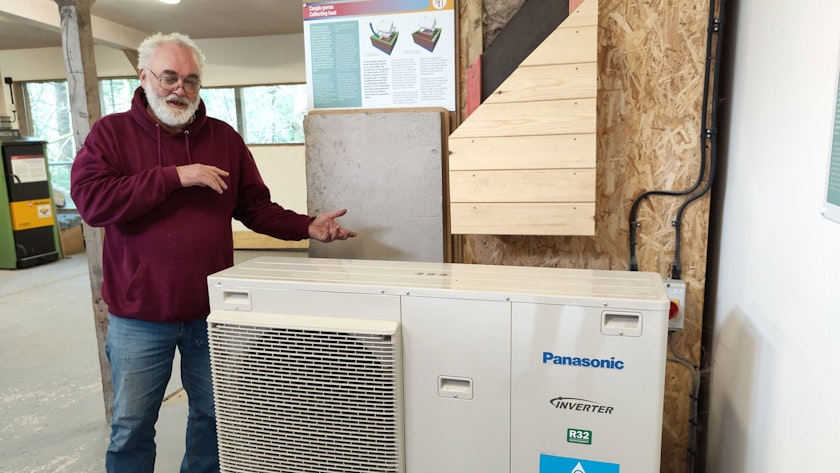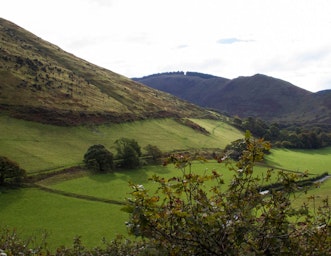
Short course spotlight – Renewables for Households: Heat Pumps
April 11, 2023Home » Short course spotlight – Renewables for Households: Heat Pumps
Explore the science, weigh up the costs and benefits, and calculate the emissions reductions of heat pumps, to decide if this technology is right for you.
During this course, we will examine the operating principles of heat pumps, how they work and what conditions they perform best in. We’ll explore the differences between air, ground and water source heat pumps and weigh up the energy efficiency of each.
Through a mix of lectures and hands-on sessions, you’ll learn about the need for detailed design, both of the system and the recipient building. The course will also cover developing a cost-benefit analysis and quantifying emissions reductions, enabling you to decide whether heat pumps are suitable for your home, community space or business.
Key information:
- Duration: one day
- Upcoming date: Saturday 13th May 2023
- Start and finish times: starts at 10am and ends at 4.30pm
- Fee: £80
- Includes: tuition, all materials
- What to bring: waterproof clothing is recommended
Installing a heat pump requires an understanding of how they work and how to choose the right system for a space.
Your tutor, Dr Alan Owen, will give you all the information you need to get to grips with heat pumps. Alan is a Chartered Energy Engineer and lecturer on our postgraduate courses. His research ranges from numerical modelling of sustainable energy systems and resources in Europe, to developing international sustainable energy policy and strategy in post-conflict/post-disaster areas of Southeast Asia.
A basic knowledge of MS Excel (or equivalent) is desirable for this course.
For more information on this and other CAT courses, please visit www.cat.org.uk/short-courses or contact us at courses@cat.org.uk
Our thanks to Oceanair for installing the air source heat pump used in our renewable energy training courses.

What are heat pumps?
Heat pumps extract energy from the outside air or from under the ground and use this to heat buildings. You’ll almost certainly have a heat pump in your home already, because small heat pumps power fridges and freezers. The process is complex, but basically the heat pump is absorbing heat from one place and moving it to another place. Most air conditioning units are heat pumps, as are efficient types of tumble-dryer.
Heat pumps are often advertised as ‘free heat’, as for a small amount of energy in (electricity) they can emit more energy out (as heat). A small amount of electricity is needed to run a compressor and harness the energy available, and this can be from renewable sources.
Renewables for Households courses
This course is part of a series exploring renewable energy technologies for households. Each course can be taken as a standalone or as a series where they will equip you with the skills and knowledge to implement different renewable technologies in your home.
- Renewables for Households: Wind Turbines – Saturday 22nd April 2023 (sold out)
- Renewables for Households: Heat Pumps – Saturday 13th May 2023(sold out)
- Renewables for Households: Solar PV – Saturday 27th May 2023 (sold out)
- Renewables for Households: Solar Hot Water – Saturday 17th June 2023
Topics already covered this year include an introductory course, biomass and insulation.
If you’d like to explore renewable energy in more depth, take a look at our MSc Sustainability in Energy Provision and Demand Management course, which explores this on a local, national and international scale.
Related Pages
EMAIL SIGN UP
Keep up to date with all the latest activities, events and online resources by signing up to our emails and following us on social media. And if you'd like to get involved and support our work, we'd love to welcome you as a CAT member.



